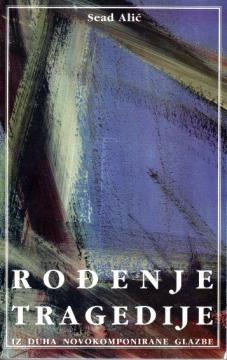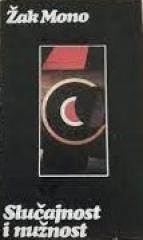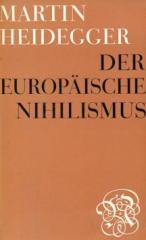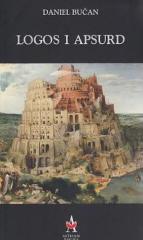
Rođenje tragedije iz duha novokomponirane glazbe
„Malo obrazovaniji čitalac će već znati da se ova knjiga odnosi na paradigmu koja je mnogo poznatija. To je Ničeova knjiga „Rađanje tragedije iz duha muzike“, knjiga koja je kada se pojavila primljena veoma oštro i sa poricanjem.
A šta bi to trebalo da znači... da se Niče može preoblikovati, prilagoditi nekoj novoj tragediji, odnosno nekoj novoj muzici. Trebalo bi previše spekulisati o samom Ničeu i o filozofskim polazištima Seada Alića da bismo to u potpunosti razumeli. Radije bih to pojednostavio ovako: Alić je apsolutno filozofski i kulturno obrazovan pisac i mogao bi da kaže da pripada onoj školi naših novih mladih filozofa koji se sa čitavim zrelim filozofskim aparatom usuđuju da raspravljaju o modernosti, inače, ono što su naše generacije profesora dugo odbijale. Nisu smeli da se uhvate u živo tkivo elektronike, medija, manipulacije digitalnim svetom – uopšte, nove realnosti. Postoji, neću da kažem jedna škola, već čitav niz mlađih autora tog stila, Boris Buden, Žarko Pajić, Kiril Miladinov i još nekolicina, kojima se i Alić pridružuje svojim filozofima, jer apsolutno jedan filozof, odnosno jedna tvrdnja – rađanje tragedije iz duha novokomponovane muzike – što ne zvuči sasvim prikladno, samo po sebi može da se kaže. jedan tekst, niti jedan esej u ovoj knjizi ne objašnjava u potpunosti ovu tvrdnju. Moramo da smislimo kako da razumemo takozvanu sitagmu iz veoma duhovitih, originalno ispričanih i filozofski komplikovanih Alićevih teza. Kako mi se čini da nije u potpunosti prikazao sadržaj svog naslova, ipak sam zadovoljan ovakvom vrstom pisanja. Naime, govorimo o drskosti da se čovek čak i poistoveti sa nekim filozofijama. Gotovo je zapanjujuće reći da je danas na kraju 20. veka neki Sead Alić za uzor uzeo velikog neoplatonistu Plotina iz trećeg veka, najvećeg filozofa i poslednjeg filozofa, velikog filozofa kerenističkog perioda, filozofa koji je značajno oblikovao srednjovekovnu teologiju, a samim tim i hrišćansku mistiku. Plotinovu filozofiju jednog teško je dokučiti, a mnogo veći filozofi su se borili da je shvate, upravo zato što je jedno neshvatljivo. „Jedno je sve“ – kaže Plotin. I to se ne može razumeti. O tome se ne može ni pričati ni spekulisati. A zašto to radimo? Jer da pokaže put. Jer pod jednim kao univerzalnim pojmom, koji može biti i Bog, nalazi se duh – Nous, pa tek onda duša koja je stvorila ovaj stvarni svet. Pa, iznenađujuće je, kažem danas, videti mladog filozofa koji se slaže sa takvom filozofijom, sa takvim apsolutnim monizmom kakav je bio Plotinov, ali se bar sa nečim slaže, nečim se bavi, bar daje neke koordinate po kojima možemo da razumemo njegove filozofije.
Angeboten wird ein Exemplar





